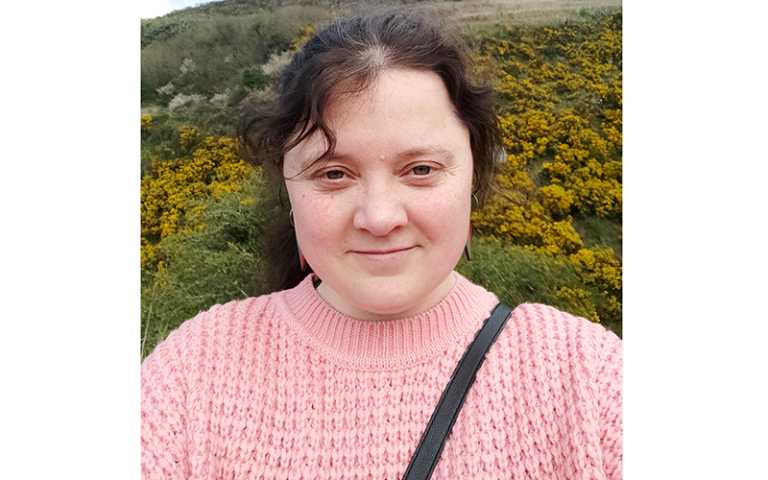Seven Questions with... Nadia Dobrianska
26 May 2023
This week we meet PhD student and Ukrainian refugee Nadia Dobrianska, who recently addressed Irish Parliamentarians on how the war in Ukraine has upended the lives of Ukrainians. Here, she chats to us about her research and favourite libraries.

What are you studying, why are you interested in this subject and what do you plan to do in the future?
My PhD project is focused on the intercommunal conflict in Belfast and Northern Ireland between Catholics and Protestants during the partition of Ireland in 1920–22. Irish nationalists referred to this conflict as the Belfast Pogrom. I am exploring how politicians, the press and the broader public represented the ongoing violence in political discourse, as it helps us to better understand the nature of the conflict and its place within the Irish Revolutionary period. I am particularly interested in propaganda and the role that politicians and the press played in the dynamic of violence, especially in inciting or, on the contrary, restraining it. After I complete my studies, I would like to teach, and continue researching, politics and violence during the partition of Ireland. I would also like to use my skills of political analysis, honed by my PhD, in contemporary Irish and British politics.
What is the most interesting thing you’ve done, seen or got involved with while at UCL?
Although I started my doctoral research at UCL in 2022, I had previously been involved with UCL’s Constitution Unit as a research volunteer. In 2020–2021, I was part of a very interesting project that analysed public attitudes to unification referendums in Ireland. We analysed the various hopes and fears people hold in Northern Ireland about possible unification referendums, and also looked into existing opinions on the desired process of the referendums (should they be held). Based on our findings, we published a working paper and a peer-reviewed article.
Have you discovered any hidden gems during your time at UCL?
Senate House Library. It is not a secret place, but it is truly a gem for PhD students like me. I really like working there because it has great resources for research, and a comforting interior.
Give us your top three things to do/see/go to in London:
- The British Library. It has almost any book you will ever need for your research. Also, keep an eye on their schedule of fantastic events.
- Royal Botanic Gardens, Kew. They are just beside the National Archives in Kew, where I spend a lot of time doing my research. A must-see!
- Little Portugal. It’s a neighbourhood near Stockwell, Brixton and Vauxhaull. I love the small cafes and pubs with Brazilian food there.
What’s one thing you’d like to see in a post-Covid world?
I want to return to the Ukrainian Carpathian Mountains with my family, after Ukraine banishes Russia from its territory and it is safe to come home.
Who inspires you and why?
The resilience of my nation against the Russian invasion is my biggest inspiration. I am deeply grateful to Ukrainian soldiers, humanitarian volunteers, diplomats, artists and every single Ukrainian who is doing everything they can to resist Russia’s genocidal war.
What would it surprise people to know about you?
I am a fluent Irish-speaker, even though I am Ukrainian. I started learning Irish on the Duolingo app in 2018, and went on to do an Irish language course in Belfast for a few terms. Now I’m studying with a tutor online, and have become a contributor on Irish-language radio, television and newspapers.
 Close
Close

